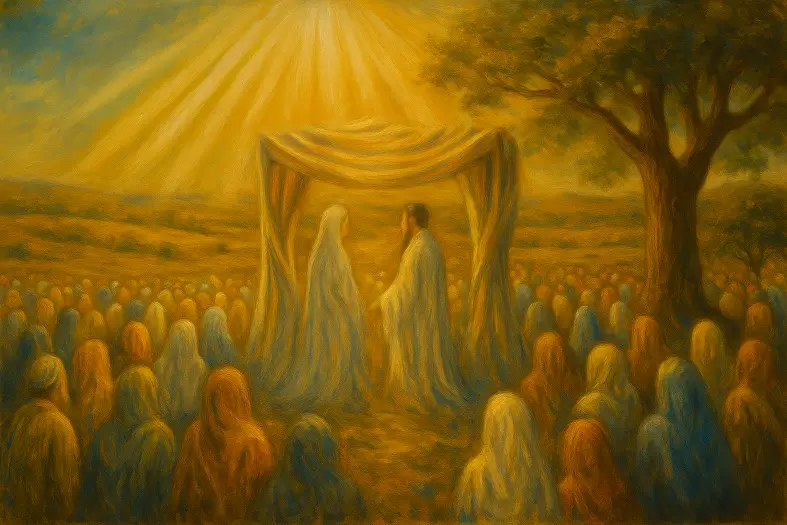


Perform the mitzvah of yibbum when a brother dies childless.
This mitzvah commands the surviving brother to marry the widow of his childless brother, known as yibbum. The first child born from this union continues the name and legacy of the deceased brother, preserving his place within Israel. While today halacha prioritizes chalitzah (releasing the widow), the Torah originally presents yibbum as a sacred act of kindness and continuity, ensuring the deceased brother’s line is not extinguished.
Commentary & Classical Explanation:


Empathy in motion — responding to another’s pain with sensitivity, patience, and understanding. Whereas chesed gives broadly, rachamim responds gently, tailoring care to a person’s emotional or spiritual needs.
Mitzvot that strengthen communal life — showing up, participating, supporting, and belonging. Community is where holiness is shared, prayers are multiplied, and responsibility becomes collective.
Represents the concept of spiritual intentionality, purity, and sanctity—set apart for a higher purpose.
Mitzvot that govern ethical behavior, kindness, justice, and responsibility in human relationships. These actions build trust, dignity, and peace between people.

Dive into mitzvos, prayer, and Torah study—each section curated to help you learn, reflect, and live with intention. New insights are added regularly, creating an evolving space for spiritual growth.

Explore the 613 mitzvos and uncover the meaning behind each one. Discover practical ways to integrate them into your daily life with insights, sources, and guided reflection.

Learn the structure, depth, and spiritual intent behind Jewish prayer. Dive into morning blessings, Shema, Amidah, and more—with tools to enrich your daily connection.

Each week’s parsha offers timeless wisdom and modern relevance. Explore summaries, key themes, and mitzvah connections to deepen your understanding of the Torah cycle.